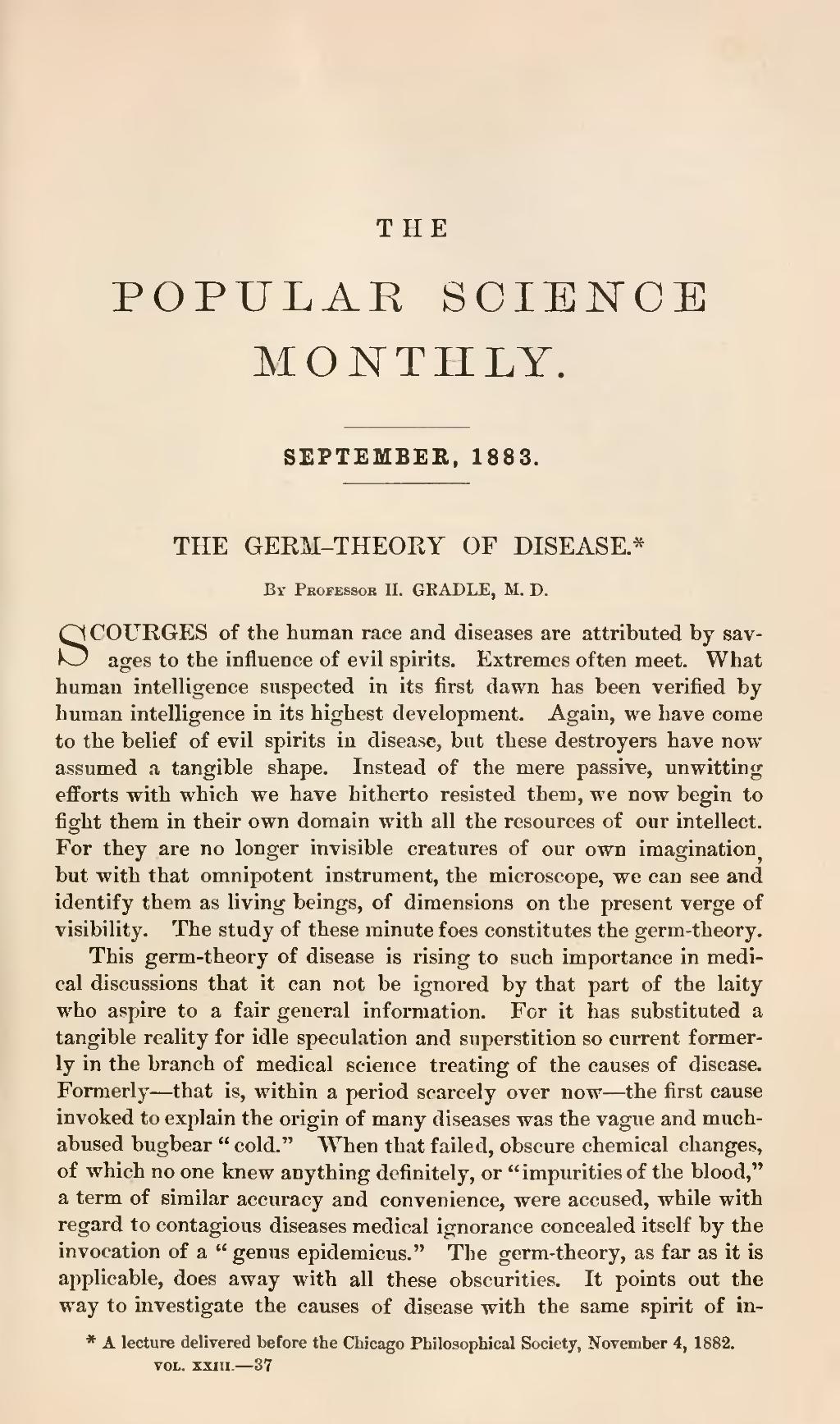THE
POPULAR SCIENCE
MONTHLY.
SEPTEMBER, 1883.
| THE GERM-THEORY OF DISEASE.[1] |
By Professor H. GRADLE, M. D.
SCOURGES of the human race and diseases are attributed by savages to the influence of evil spirits. Extremes often meet. What human intelligence suspected in its first dawn has been verified by human intelligence in its highest development. Again, we have come to the belief of evil spirits in disease, but these destroyers have now assumed a tangible shape. Instead of the mere passive, unwitting efforts with which we have hitherto resisted them, we now begin to fight them in their own domain with all the resources of our intellect. For they are no longer invisible creatures of our own imagination but with that omnipotent instrument, the microscope, we can see and identify them as living beings, of dimensions on the present verge of visibility. The study of these minute foes constitutes the germ-theory.
This germ-theory of disease is rising to such importance in medical discussions that it can not be ignored by that part of the laity who aspire to a fair general information. For it has substituted a tangible reality for idle speculation and superstition so current formerly in the branch of medical science treating of the causes of disease. Formerly—that is, within a period scarcely over now—the first cause invoked to explain the origin of many diseases was the vague and much-abused bugbear "cold." When that failed, obscure chemical changes, of which no one knew anything definitely, or "impurities of the blood," a term of similar accuracy and convenience, were accused, while with regard to contagious diseases medical ignorance concealed itself by the invocation of a "genus epidemicus." The germ-theory, as far as it is applicable, does away with all these obscurities. It points out the way to investigate the causes of disease with the same spirit of in-
- ↑ A lecture delivered before the Chicago Philosophical Society, November 4, 1882.

